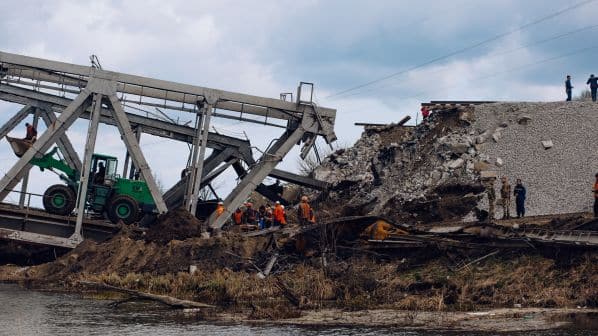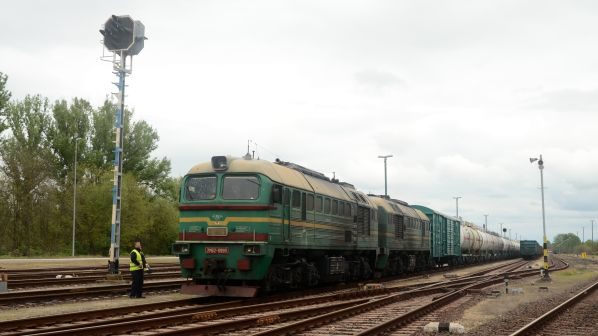UKRAINIAN Railways (UZ) has completed the reconstruction of two major rail bridges over the Irpin River on the outskirts of Kyiv, which were destroyed in the early days of the Russian invasion of Ukraine.
The two single-track bridges, which carry the line from Kyiv to Irpin, Bucha and Borodyanka, were destroyed on March 21 2022. The western bridge was temporarily repaired, with services resuming on May 8 2022.

UZ has now completed a major overhaul of both bridges, removing damaged sections and rebuilding one crossing to allow operation to resume on both bridges.
“After the enemy was defeated and driven out of the Kyiv region, we had to help return normal life to the region as soon as possible and restore railway connections to de-occupied settlements,” says UZ board member, Mr Roman Chernitsky. “Initially, the bridge over the Irpin River was restored under a temporary scheme within a month. This made it possible to launch trains to Irpin, Bucha, Borodyanka and other settlements in early May last year. After that, we started work on the overhaul of the bridge. From now on, we can return to proper levels of service.”

UZ CEO, Mr Yevhen Liashchenko, says around 70 rail bridges have been damaged in the fighting, with around a third already rebuilt.
“Understanding the importance of the railway for the population and the country's economy, railway workers are making every effort to restore all damaged infrastructure as soon as possible and keep trains running,” he says. “I am grateful to all railway workers and our partners who are helping us to restore the infrastructure.”
Moldova route reopens
Freight trains have also begun operating between Ukraine and Moldova via the restored Berezine - Basarabeasca border crossing, the third crossing between the two countries.
“This is currently the shortest route to the ports of Reni, Galati and Giurgiulesti, which will help UZ increase export and transit traffic,” says UZ board member, Mr Vyacheslav Yeryomin. “According to our estimates, the section will allow us to transport an additional 4-10 million tonnes of freight per year.
“The delivery time for export cargoes to the ports of Moldova and Romania, as well as the Ukrainian port of Reni, will be reduced by four to six days, while the cost of transporting export cargo will be reduced by between $US 10 and $US-35 per tonne, depending on the cargo and route.”




